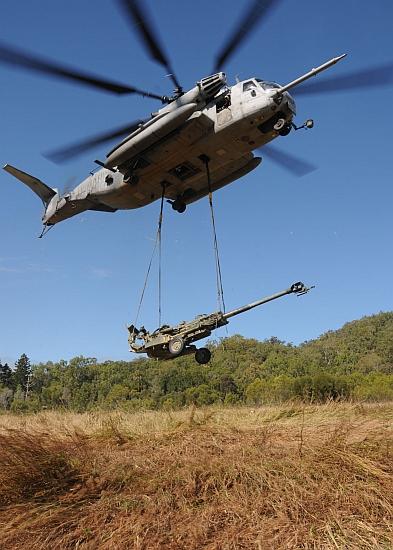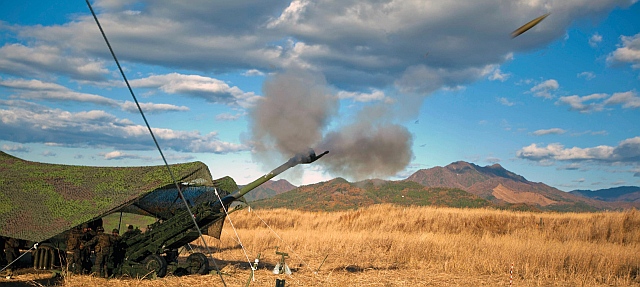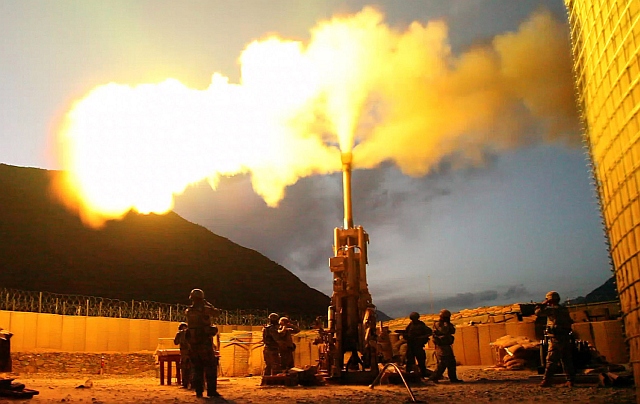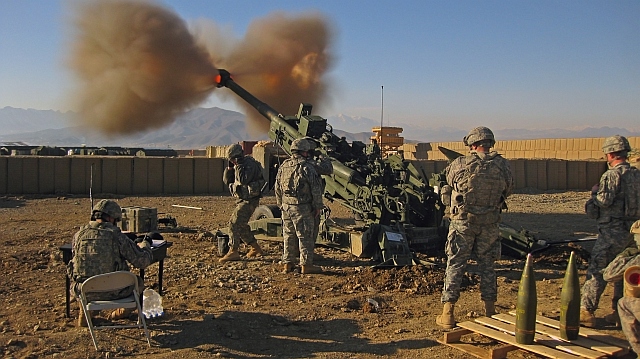Photographs: shelf3d.com
In August, the Pentagon re-notified the United States Congress of sale of howitzers to India for up to $885 million. A 2010 notification had stated a maximum cost of $647 million
A delay of over three years by the Ministry of Defence in ordering urgently needed artillery guns for mountain divisions has raised the cost by as much as 90 per cent. New Delhi’s order for 145 pieces of the BAE Systems M777 ultra-light howitzers (ULHs), which would have cost less than Rs 2,960 crore in January 2010, could now cost up to Rs 5,610 crore.
On August 7, the US department of defense (Pentagon) re-notified the US Congress of the sale to India of 145 BAE Systems M777 towed 155 mm/39-calibre ultra-light howitzers (ULHs) for up to $885 million (Rs 5,664 crore). This has superseded the earlier notification of January 26, 2010, which had stated a maximum cost of US $647 million (Rs 4,141 crore).
...
Why US-made howitzers will cost India 90% more
Image: The M777 ultra-light howitzerPhotographs: shelf3d.com
This price increase of 38 per cent comes alongside the appreciation of the dollar by almost 45 per cent, from Rs 45.86 on January 26, 2010, to Rs 63.23 on Tuesday. This double whammy has raised the cost by up to Rs 2,650 crore
However, senior Pentagon sources point out that the price of $885 million mentioned in the re-notification of August 7 is the “upper limit of the price envelope”, and a deal finalised quickly might not cost substantially more than the previously notified $647 million.
“But some escalation is inevitable, given that the earlier notification dated back more than three years. Besides, BAE Systems has already incurred costs in keeping its assembly line open,” says the Pentagon official.
New Delhi is directly negotiating the purchase of 145 M777 ULHs with the Pentagon under what the US calls the Foreign Military Sales programme. In this, India buys the gun directly from the Pentagon, which negotiates terms with the supplier (in this case BAE Systems), charging a small percentage for its services.
...
Why US-made howitzers will cost India 90% more
Image: The M777 ultra-light howitzer in actionPhotographs: shelf3d.com
Most major components of the M777 ULH are made in the United Kingdom. However, since the US army and Marine Corps are major users of the gun (the British army itself does not use the M777), it is assembled at a BAE Systems plant in Hattiesburg, Mississippi, USA.
Discussions continue between the MoD and BAE Systems but the purchase has not been finalised. There are reports of an effort to finalise a contract in time for Prime Minister Manmohan Singh’s visit to the US next month.
Production on the BAE Systems production line in Hattiesburg is winding down and would be closed in the absence of new orders. If New Delhi places an order for the M777 after the line closes down, that could result in a major cost escalation, since re-starting a shut down line and re-certifying suppliers of sub-systems would involve a substantial cost.
Business Standard understands that the previous commercial price bid from the Pentagon expired on July 31. The Pentagon is now likely to submit an “intermediate price offer” along with an expiry date.
...
Why US-made howitzers will cost India 90% more
Image: The M777 ultra-light howitzer in actionPhotographs: shelf3d.com
The procurement of the M777 has been delayed partly due to controversy over the blacklisting of its competitor, the Pegasus howitzer offered by Singapore Technologies Kinetic.
Consequently, the M777 is a single-vendor purchase, which has made the MoD extremely cautious even though the army urgently wants the gun for the mountain divisions and strike corps that it is raising for the Sino-Indian border in the northeast.
If the M777 proves its worth, the initial order of 145 guns could be substantially increased in the form of “follow-on orders”. The Indian Army needs light 155 millimetre guns for seven corps that are deployed in mountain terrain. Unlike conventional artillery, ULHs can be lifted by helicopter to deployment areas high in the mountains.
India’s 220 artillery regiments (most of these fielding 18 guns each) have been making do with guns procured in the 1970s and 1980s. With overseas purchases repeatedly cancelled, and the ghost of the Bofors scandal lurking over the procurement of artillery guns, the Ordnance Factory Board is building 140 guns.
Alongside that, the Defence R&D Organisation is partnering the private sector in developing and manufacturing modern 155 millimetre/52 calibre artillery guns.






article